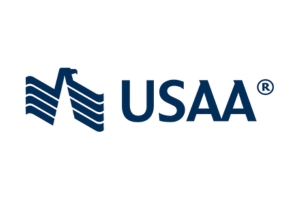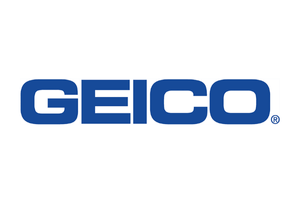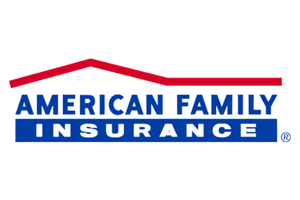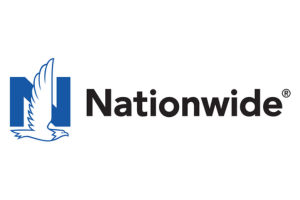How To File a Homeowners Insurance Claim in Maryland
Learn the step-by-step process of filing a homeowners insurance claim in Maryland with our comprehensive guide. Discover essential tips and expert advice on how to navigate through this crucial process smoothly. Get the compensation you deserve!
Read more Secured with SHA-256 Encryption





Save Money by Comparing Insurance Quotes
Compare Free Home Insurance Quotes Instantly




Table of Contents
Table of Contents


Insurance Content Managing Editor
Daniel S. Young began his professional career as chief editor of The Chanticleer, a Jacksonville State University newspaper. He also contributed to The Anniston Star, a local newspaper in Alabama. Daniel holds a BA in Communication and is pursuing an MA in Journalism & Media Studies at the University of Alabama. With a strong desire to help others protect their investments, Daniel has writt...
Daniel S. Young


Licensed Insurance Producer
Dani Best has been a licensed insurance producer for nearly 10 years. Dani began her insurance career in a sales role with State Farm in 2014. During her time in sales, she graduated with her Bachelors in Psychology from Capella University and is currently earning her Masters in Marriage and Family Therapy. Since 2014, Dani has held and maintains licenses in Life, Disability, Property, and Casualt...
Dani Best
Updated September 2024
Filing a homeowners insurance claim can be a complex process, and it’s important to understand the steps involved to ensure a smooth and successful outcome. In Maryland, homeowners insurance is designed to protect your property and belongings in the event of a covered loss or damage. This article will guide you through the process of filing a homeowners insurance claim in Maryland, including understanding the coverage, assessing property damage, dealing with insurance adjusters, and understanding the claim settlement.
Understanding Homeowners Insurance in Maryland
Before diving into the claims process, it’s essential to have a good understanding of the homeowners insurance coverage available in Maryland. Homeowners insurance typically provides two primary types of coverage:
- Property Coverage: This covers damage to your home and other structures on your property, such as detached garages or sheds.
- Personal Property Coverage: This covers damage to or loss of your personal belongings, such as furniture, electronics, and clothing.
It’s important to review your policy and understand the specific coverages and limitations it provides. Every policy is unique, so take the time to familiarize yourself with what is covered and what is not.
When it comes to property coverage, homeowners insurance in Maryland typically includes protection against various perils. These perils can range from fire and theft to water damage from bursting pipes and windstorm and hail damage. The coverage also extends to personal liability, ensuring that you are protected in case someone is injured on your property.
However, it’s important to note that not all perils are covered by standard homeowners insurance policies. For example, floods and earthquakes are typically excluded and require separate coverage. Review your policy to determine any additional coverage you may need for specific perils in your area.
Specifics of Homeowners Insurance in Maryland
Homeowners insurance policies in Maryland may have specific provisions or requirements due to the region’s unique geographic characteristics. For example, some policies may have specific coverage exclusions for hurricanes or other natural disasters that are more prevalent in certain areas of the state.
Additionally, Maryland is prone to heavy snowfall during winter months, which can lead to roof collapses or ice dams. Some policies may require regular maintenance, such as removing snow from your roof, as a condition of coverage. Understanding these specifics can help you better navigate the claims process.
When it comes to personal property coverage, homeowners insurance in Maryland ensures that your belongings are protected in case of damage or loss. This coverage extends to a wide range of items, including furniture, electronics, clothing, and more. It provides peace of mind knowing that even if the unexpected happens, you can recover the value of your personal belongings.
In addition to property and personal property coverage, homeowners insurance in Maryland also includes liability coverage. This coverage protects you financially if someone is injured on your property and files a lawsuit against you. It can help cover medical expenses, legal fees, and other costs associated with the incident.
It’s important to note that homeowners insurance policies in Maryland may have specific requirements or recommendations for maintaining your property. This can include regular maintenance tasks such as trimming trees, securing loose objects, and keeping your property in good condition. By fulfilling these requirements, you can ensure that your coverage remains valid and that you are prepared for any potential claims.
Free Home Insurance Comparison
Compare Quotes From Top Companies and Save
Secured with SHA-256 Encryption
When Should You File a Homeowners Insurance Claim?
Once you’ve experienced damage or loss to your property, it’s important to determine whether it’s necessary to file a homeowners insurance claim. In some cases, the cost of repairs may be lower than your deductible, making it more beneficial to cover the expenses out of pocket. However, if the damage is extensive or beyond your means, filing a claim becomes essential. These are the key considerations:
Assessing Property Damage
The first step in deciding whether to file a claim is assessing the extent of the property damage. Take photographs or videos of the affected areas and document any damage in detail. This documentation will be crucial when filing your claim and working with insurance adjusters. Additionally, consider obtaining independent estimates for repairs to assist in evaluating the cost of repairs versus your deductible.
When assessing property damage, it’s important to consider not only the visible damage but also any potential underlying issues. For example, if your roof has been damaged by a storm, it’s not just the visible shingles that need to be evaluated. There may be hidden structural damage that could lead to more significant issues in the future. By thoroughly documenting all damage, you can ensure that your claim covers all necessary repairs.
Furthermore, it’s worth noting that some types of damage may not be immediately apparent. For instance, water damage caused by a leaking pipe may not be visible until mold starts to grow. It’s essential to thoroughly inspect your property to identify any hidden damage that may not be immediately obvious.
Evaluating the Cost of Repairs vs. Deductible
Compare the estimated cost of repairs to your policy’s deductible. Remember that the deductible is the amount you must pay out of pocket before your insurance coverage kicks in. If the cost of repairs is significantly higher than your deductible, filing a claim is likely the best course of action.
However, it’s important to consider the long-term implications of filing a claim. Insurance claims can lead to increased premiums, which means you may end up paying more in the long run. If the cost of repairs is only slightly higher than your deductible, it may be worth considering whether it’s more financially beneficial to cover the expenses yourself.
In addition to evaluating the cost of repairs, it’s also crucial to consider the potential impact on your claims history. Insurance companies often take into account the frequency and severity of claims when determining premiums. If you have a history of filing numerous claims, it may result in higher premiums or even difficulty in obtaining coverage in the future.
Ultimately, the decision of whether to file a homeowners insurance claim depends on various factors, including the extent of the damage, the cost of repairs, and the potential long-term consequences. It’s important to carefully weigh these considerations and consult with your insurance provider to make an informed decision.
Steps to File a Homeowners Insurance Claim in Maryland
Once you’ve determined that filing a claim is necessary, it’s time to follow the necessary steps to ensure a successful outcome. The following steps will guide you through the process:
Documenting the Damage
Gather all the evidence you collected during the assessment of property damage. This includes photographs, videos, and any independent estimates you obtained. This documentation will help support your claim and provide evidence of the extent of the damage.
When documenting the damage, it’s important to be thorough and detailed. Take multiple photographs from different angles to capture the full scope of the damage. If there are any specific items that have been affected, make sure to photograph them individually as well. Additionally, if there are any visible signs of the cause of the damage, such as a leaky pipe or a tree branch that fell on your roof, be sure to document those as well.
Furthermore, it’s a good idea to create a written inventory of the damaged items. Include descriptions, estimated values, and any relevant purchase receipts or appraisals. This will help ensure that you don’t miss any important details when filing your claim.
Contacting Your Insurance Company
Reach out to your insurance company as soon as possible to report the loss or damage. Many insurance companies have dedicated claim hotlines that operate 24/7. Provide them with the necessary details and be prepared to answer questions about the claim.
When contacting your insurance company, it’s important to have all the relevant information readily available. This includes your policy number, the date and time the damage occurred, and a description of what happened. The more specific and detailed you can be, the better it will be for your claim.
Additionally, it’s worth noting that some insurance policies have specific time limits for reporting claims. Make sure to familiarize yourself with your policy’s requirements to ensure that you don’t miss any deadlines.
Filling Out the Claim Forms
Your insurance company will provide claim forms for you to complete. These forms will ask for information regarding the incident, details about the damage, and any supporting documentation you have collected. Take your time to complete the forms accurately and thoroughly.
When filling out the claim forms, it’s important to be as detailed as possible. Provide a clear and concise description of the incident, including the date, time, and location. Include any relevant information about the cause of the damage, such as a storm or a fire.
In addition to the incident details, the claim forms will also ask for information about the damage itself. Describe the extent of the damage and list any affected items or areas of your property. If you have any supporting documentation, such as repair estimates or invoices, make sure to attach them to the claim forms.
Remember to keep copies of all the documents you submit to your insurance company for your own records. This will help you keep track of the information and provide proof of your claim should it be necessary in the future.
Dealing with Insurance Adjusters
After submitting your claim, an insurance adjuster will be assigned to assess the damage and determine the claim’s validity. It’s important to understand the role of the insurance adjuster and how to navigate the process:
Insurance adjusters play a crucial role in the claims process. They are trained professionals who are responsible for investigating and evaluating the extent of the damage to your property. Their main objective is to determine the validity of your claim and calculate the appropriate amount of compensation you are entitled to receive.
What to Expect During the Adjuster’s Visit
The insurance adjuster will schedule a visit to assess the damage in person. This visit is an essential part of the claims process as it allows the adjuster to gather accurate information about the extent of the damage. During the visit, they will inspect the property thoroughly, documenting the damage they observe.
It is important to be present during the adjuster’s visit to ensure that all the damage is properly documented. Take the opportunity to point out any additional damage that may not be immediately visible. The adjuster will also ask you questions to gather more information about the incident and the condition of your property before the damage occurred.
Additionally, the adjuster may request any additional evidence or documentation to support your claim. This could include photographs, receipts for repairs or replacements, or any other relevant information that can help strengthen your case.
Negotiating with the Insurance Adjuster
Once the insurance adjuster has evaluated the damage and determined the claim’s value, they will provide a settlement offer. It’s essential to review the offer carefully and compare it to the estimates obtained earlier. If you believe the settlement offer is inadequate, you have the right to negotiate with your insurance company.
When negotiating with the insurance adjuster, it is important to present your case in a clear and organized manner. Provide any additional evidence or expert opinions to support your position. This could include quotes from contractors or specialists in the field who can attest to the accurate cost of repairs or replacements.
Keep in mind that negotiation is a process, and it may take some back-and-forth discussions before reaching a satisfactory settlement. Be prepared to provide counteroffers and explain why you believe your claim deserves a higher settlement amount.
Remember, insurance adjusters are professionals who are trained to evaluate claims objectively. It is essential to maintain a respectful and cooperative attitude throughout the negotiation process. By presenting your case with clarity and providing supporting evidence, you increase your chances of reaching a fair and reasonable settlement.
Free Home Insurance Comparison
Compare Quotes From Top Companies and Save
Secured with SHA-256 Encryption
Understanding the Claim Settlement
Once you reach an agreement with the insurance company or negotiate a settlement, it’s important to understand how the claim payout is determined and the potential outcomes:
How is the Claim Payout Determined?
The claim payout is determined based on the coverage provided by your insurance policy, the extent of the damage, and the agreement reached with the insurance adjuster. The payout may cover the full cost of repairs or replacement, or it may be subject to deductibles and coverage limits specified in your policy.
What If You Disagree with the Settlement?
In the event that you disagree with the settlement offer provided by your insurance company, you have the right to appeal the decision. Contact your insurance company to discuss the disagreement and provide any additional evidence or expert opinions that support your claim. Additionally, you may want to consult with a professional, such as a public adjuster or an attorney, who can provide guidance and advocate for your best interests.
By understanding the process of filing a homeowners insurance claim in Maryland and following the necessary steps, you can navigate the claims process more effectively. Remember to review your policy, document the damage thoroughly, communicate with your insurance company, work with insurance adjusters, and seek professional assistance if necessary. With the right approach, you can confidently file a homeowners insurance claim and protect your property and belongings in Maryland.
Frequently Asked Questions
What is homeowners insurance?
Homeowners insurance is a type of insurance policy that provides financial protection to homeowners in case of damage or loss to their property or belongings.
When should I file a homeowners insurance claim?
You should file a homeowners insurance claim as soon as possible after experiencing damage or loss to your property. It is important to notify your insurance company promptly to begin the claims process.
What does homeowners insurance cover in Maryland?
Homeowners insurance in Maryland typically covers damage or loss caused by fire, theft, vandalism, windstorms, hail, lightning, and other specified perils. It may also provide liability coverage if someone is injured on your property.
How do I file a homeowners insurance claim in Maryland?
To file a homeowners insurance claim in Maryland, you should follow these general steps:
1. Contact your insurance company or agent to report the claim.
2. Provide detailed information about the damage or loss.
3. Take photographs or videos of the damage, if possible.
4. Make temporary repairs to prevent further damage.
5. Keep records of any expenses related to the claim.
6. Cooperate with the insurance company’s investigation and provide any requested documentation.
What documents do I need to file a homeowners insurance claim in Maryland?
When filing a homeowners insurance claim in Maryland, it is helpful to have the following documents:
– Your insurance policy details
– Date and time of the incident
– Description of the damage or loss
– Photographs or videos of the damage, if available
– Police reports or incident reports, if applicable
– Receipts or invoices for any temporary repairs or expenses related to the claim
Can my homeowners insurance claim be denied?
Yes, it is possible for a homeowners insurance claim to be denied. The insurance company may deny a claim if the damage or loss is not covered by the policy, if it was caused by excluded perils, or if the claim was not filed within the specified time frame. It is important to review your policy and understand its terms and conditions.
Get a FREE Quote in Minutes
Insurance rates change constantly — we help you stay ahead by making it easy to compare top options and save.

